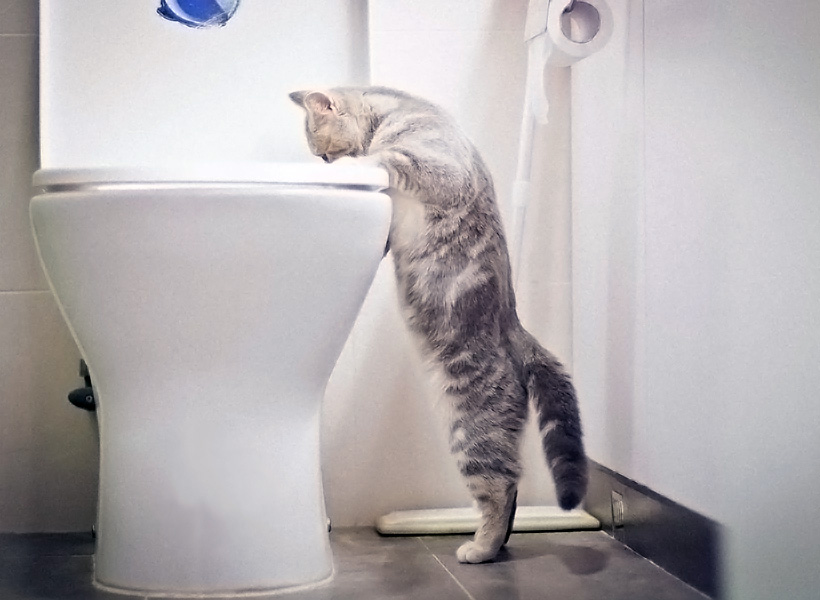Avoid Flush Cat Poop Down Your Toilet - Safeguard Your Plumbing Infrastructure
Avoid Flush Cat Poop Down Your Toilet - Safeguard Your Plumbing Infrastructure
Blog Article
Just how do you feel about How to Dispose of Cat Poop and Litter Without Plastic Bags?

Introduction
As feline owners, it's essential to be mindful of just how we throw away our feline good friends' waste. While it may appear practical to flush cat poop down the bathroom, this technique can have harmful consequences for both the setting and human health and wellness.
Alternatives to Flushing
The good news is, there are more secure and more responsible ways to throw away feline poop. Think about the adhering to alternatives:
1. Scoop and Dispose in Trash
The most common method of getting rid of feline poop is to scoop it into a naturally degradable bag and toss it in the garbage. Be sure to use a devoted clutter scoop and take care of the waste without delay.
2. Usage Biodegradable Litter
Opt for eco-friendly feline clutter made from products such as corn or wheat. These litters are eco-friendly and can be safely gotten rid of in the garbage.
3. Bury in the Yard
If you have a backyard, consider hiding feline waste in an assigned area away from vegetable yards and water resources. Make sure to dig deep enough to prevent contamination of groundwater.
4. Install a Pet Waste Disposal System
Invest in a family pet waste disposal system particularly created for pet cat waste. These systems make use of enzymes to break down the waste, lowering smell and environmental impact.
Health and wellness Risks
In addition to environmental concerns, flushing cat waste can additionally present health dangers to people. Cat feces may have Toxoplasma gondii, a parasite that can trigger toxoplasmosis-- a potentially severe illness, especially for expecting ladies and people with weakened body immune systems.
Ecological Impact
Flushing feline poop introduces dangerous pathogens and parasites right into the water, posing a substantial risk to aquatic ecological communities. These pollutants can negatively influence aquatic life and compromise water quality.
Conclusion
Liable family pet ownership expands past supplying food and shelter-- it additionally involves proper waste management. By refraining from flushing feline poop down the commode and choosing alternative disposal approaches, we can minimize our ecological impact and shield human health.
Why You Should Never Flush Cat Poop Down the Toilet
A rose by any other name might smell as sweet, but not all poop is created equal. Toilets, and our sewage systems, are designed for human excrement, not animal waste. It might seem like it couldn’t hurt to toss cat feces into the loo, but it’s not a good idea to flush cat poop in the toilet.
First and foremost, assuming your cat uses a litter box, any waste is going to have litter on it. And even the smallest amount of litter can wreak havoc on plumbing.
Over time, small amounts build up, filling up your septic system. Most litter sold today is clumping; it is made from a type of clay that hardens when it gets wet. Ever tried to scrape old clumps from the bottom of a litter box? You know just how cement-hard it can get!
Now imagine just a small clump of that stuck in your pipes. A simple de-clogger like Drano isn’t going to cut it. And that means it’s going to cost you big time to fix it.
Parasitic Contamination
Believe it or not, your healthy kitty may be harboring a nasty parasite. Only cats excrete Toxoplasma in their feces. Yet it rarely causes serious health issues in the cats that are infected. Most people will be fine too if infected. Only pregnant women and people with compromised immune systems are at risk. (If you’ve ever heard how women who are expecting are excused from litter cleaning duty, Toxoplasma is why.)
But other animals may have a problem if infected with the parasite. And human water treatment systems aren’t designed to handle it. As a result, the systems don’t remove the parasite before discharging wastewater into local waterways. Fish, shellfish, and other marine life — otters in particular — are susceptible to toxoplasma. If exposed, most will end up with brain damage and many will die.
Depending on the species of fish, they may end up on someone’s fish hook and, ultimately on someone’s dinner plate. If that someone has a chronic illness, they’re at risk.
Skip the Toilet Training
We know there are folks out there who like to toilet train their cats. And we give them props, it takes a lot of work. But thanks to the toxoplasma, it’s not a good idea.

Do you really like reading up on Don’t flush cat feces down the toilet? Write a remark down below. We'd be delighted to see your ideas about this posting. We are looking forward to see you back again in the future. Sharing is nice. Helping others is fun. Many thanks for your time invested reading it.
Estimate Report this page